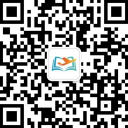Foundationalism托福听力原文翻译及问题答案
2023-06-08 15:09:06 来源:中国教育在线
Foundationalism托福听力原文翻译及问题答案
一、Foundationalism托福听力原文:
NARRATOR:Listen to part of a lecture in a philosophy class.
MALE PROFESSOR:OK,...so,uh,to continue our discussion...when philosophers talk about the basis of knowledge,they don't mean the source of information about any particular subject—they mean how we know what we know.Let's start with one philosophical view:foundationalism.
Foundationalism is the view that our"knowledge claims"—what we think we know,that is—they need to have a base.Um,think of knowledge as a house.You need a solid foundation on which to build your house,
and if you have a strong foundation,your house is more likely to be solid.Well,foundationalists think the same thing is true of knowledge—if you have a solfid base for your knowledge claims,then your knowledge structure is more likely to be strong...valid...true.
First you need some good foundational knowledge claims,and then the rest of the knowledge claims can be based on these.Now,as to what kinds of knowledge claims are foundational,well,that's where this gets particularly interesting...in that it sorta depends which philosopher you ask.Take John Locke,for instance.
Locke's viewpoint,essentially,was that when humans are born,their minds are like blank slates.That is,we don't have any kind of knowledge when we're born.We get our knowledge from our senses,y'know:taste,touch,smell,sight,hearing.
So when we look at the world,first as babies and then as we grow,that's where our knowledge comes from.Our senses,our experiences serve as the foundation for our knowledge.Now,for a very different view,let's turn to another philosopher,RenéDescartes.
Descartes thought that you have to go much deeper to find the foundations.He believed that our senses are not to be trusted,so he wanted to find a more solid foundation for knowledge.He began with what has come to be called"methodological doubt."And when we say"methodological doubt,"well...Descartes believed that everything should be questioned...that is,approached with doubt.And if you could find one thing that cannot be false,that one thing would serve as a foundation for all other knowledge claims.So,unlike John Locke,Descartes doubts that knowledge comes to him from his senses; he points out that,at some time or another,everyone has been deceived by their senses.We've all had experiences where our senses have been wrong...illusions,uh,perhaps mirages.
When driving in the car on a hot summer day,you may see what looks like shimmering water on the road,which,as science tells us,is really just a mirage...an illusion caused by the heating of the air.Our senses are wrong;they've deceived us.And Descartes thinks that since our senses can deceive us,we ought not take for granted that what they tell us is really true.That's the first step in his methodological doubt.
From there he wonders,"Well,OK,I can doubt my senses,but can I doubt that I'm sitting in this room?"Can it seem that we're not really here, that we're somewhere else? He concedes that most of us would know that we're sitting in a room.But then he says,"Well,couldn't I just be dreaming?"
He's had dreams that were so real that he thought he was awake when in fact he was actually asleep.And this is another good point: It's really hard to be sure that you're not actually dreaming—yet another proof for Descartes that we can't always trust what our senses are apparently telling us.We could be dreaming— and there's really no good way to prove that we're not.
So the commonsense picture of reality—that the world really is the way it looks to us—Descartes shows that we cannot just assume this to be true beyond all doubt,and he does this by talking about illusions.And also by arguing that we could be dreaming.But consider this,he says:While one is thinking,or doubting,or doing any of those sorts of mental activities,one has to exist,right?To even think,"doubt that I exist,"you have to exist.And so what Descartes has done is find at least one thing that he can be certain of.He says,"I exist,"and that's a start.And other knowledge,he tells us,can be based on that foundation.
二、Foundationalism托福听力中文翻译:
旁白:在哲学课上听一部分讲座。
男教授:好吧,……那么,继续我们的讨论……当哲学家谈论知识的基础时,他们不是指任何特定学科的信息来源,而是指我们如何知道我们所知道的。让我们从一个哲学观点开始:基础主义。
基础主义是一种观点,即我们的“知识主张”-我们认为我们知道的东西,即它们需要有一个基础。嗯,把知识看作一座房子。你需要一个坚实的基础来建造你的房子,
如果你有一个坚实的基础,你的房子更可能是坚固的。好吧,基础主义者认为同样的事情也适用于知识。如果你的知识主张有一个solfid基础,那么你的知识结构更有可能是强大的……有效的……真实的。
首先,您需要一些良好的基础知识声明,然后其他知识声明可以基于这些。现在,关于什么样的知识主张是基础性的,好吧,这就是它变得特别有趣的地方…因为它在某种程度上取决于你问哪个哲学家。以约翰·洛克为例。
洛克的观点本质上是,当人类出生时,他们的思想就像一块白板。也就是说,我们出生时没有任何知识。我们的知识来自我们的感官,你知道:味觉、触觉、嗅觉、视觉和听觉。
因此,当我们看世界时,首先是婴儿,然后是长大成人,这就是我们的知识来源。我们的感官和经验是我们知识的基础。现在,对于一个非常不同的观点,让我们转向另一位哲学家,勒内·笛卡尔。
笛卡尔认为,你必须更深入地寻找基础。他认为我们的感官是不可信的,所以他想找到一个更坚实的知识基础。他从所谓的“方法论怀疑”开始。当我们说“方法论的怀疑”时,笛卡尔认为一切都应该被质疑,也就是说,用怀疑来对待。如果你能找到一个不可能是错误的东西,这一个东西将成为所有其他知识主张的基础。因此,与约翰·洛克不同,笛卡尔怀疑知识来自他的感官 ;他指出,在某个时候,每个人都被自己的感觉所欺骗。我们都有过感觉错误的经历…幻觉,呃,也许是海市蜃楼。
当你在炎热的夏日开车时,你可能会看到路上闪闪发光的水,正如科学告诉我们的,这真的只是一个海市蜃楼……一个由空气加热引起的幻觉。我们的感觉是错误的;他们欺骗了我们。笛卡尔认为,既然我们的感官可以欺骗我们,我们不应该想当然地认为它们告诉我们的是真实的。这是他方法论怀疑的第一步。
从那里他想,“好吧,好吧,我可以怀疑我的感觉,但我可以怀疑自己坐在这个房间里吗?”我们是否真的不在这里;我们在别的地方 ;他承认,我们大多数人都知道我们坐在一个房间里。然后他说,“我不能只是在做梦吗?”
他做的梦是如此真实,以至于他以为自己是醒着的,而事实上他实际上是睡着了。这是另一个优点:;很难确定你不是真的在做梦。笛卡尔的另一个证明是,我们不能总是相信我们的感官显然在告诉我们什么。我们可能在做梦;没有好办法证明我们不是。
因此,笛卡尔对现实的常识性描述表明,世界在我们看来是真实的,我们不能毫无疑问地假设这是真的,他通过谈论幻觉来做到这一点。而且还认为我们可能在做梦。但考虑到这一点,他说:当一个人在思考、怀疑或做任何这些精神活动时,他必须存在,对吗?要想“怀疑我的存在”,你必须存在。所以笛卡尔所做的是找到至少一件他可以确定的事情。他说,“我存在”,这是一个开始。他告诉我们,其他知识也可以基于这个基础。
三、Foundationalism托福听力问题:
Q1:1.What is the lecture mainly about?
A.The importance of Locke's view to modern philosophical thought
B.How Descartes'view of knowledge influenced trends of Western philosophy
C.How two philosophers viewed foundational knowledge claims
D.The difference between foundationalism and methodological thought
Q2:2.Why does the professor mention a house?
A.To explain an idea about the organization of human knowledge
B.To illustrate the unreliability of our perception of physical objects
C.To clarify the difference between two points of view about the basis of human knowledge
D.To remind students of a point he made about Descartes in a previous lecture
Q3:3.What did Locke believed to be the most basic type of human knowledge?
A.Knowledge of one's own existence
B.Knowledge acquired through the senses
C.Knowledge humans are born with
D.Knowledge passed down from the previous generations
Q4:4.According to the professor,what was Descartes’purpose for using methodological doubt?
A.To discover what can be considered foundational knowledge claims
B.To challenge the philosophical concept of foundationalism
C.To show that one's existence cannot be proven
D.To demonstrate that Locke's view were essentially correct
Q5:5.For Decartes,what was the significance of dreaming?
A.He believed that his best ideas came to him in dreams.
B.He regarded dreaming as the strongest proof that human exists.
C.Dreaming supports his contention that reality has many aspects.
D.Dreaming illustrates why human experience of reality cannot always be trusted.
Q6:6.According to Descartes,what kind of belief should serve as foundation for all other knowledge claims?
A.A belief that is consistent with what one sees and hears.
B.A belief that most other people share.
C.A belief that one has held since childhood.
D.A belief that can not be false.
四、Foundationalism托福听力答案:
A1:正确答案:C
A2:正确答案:A
A3:正确答案:B
A4:正确答案:A
A5:正确答案:D
A6:正确答案:D
>> 雅思 托福 免费课程学习,AI量身规划让英语学习不再困难<<









